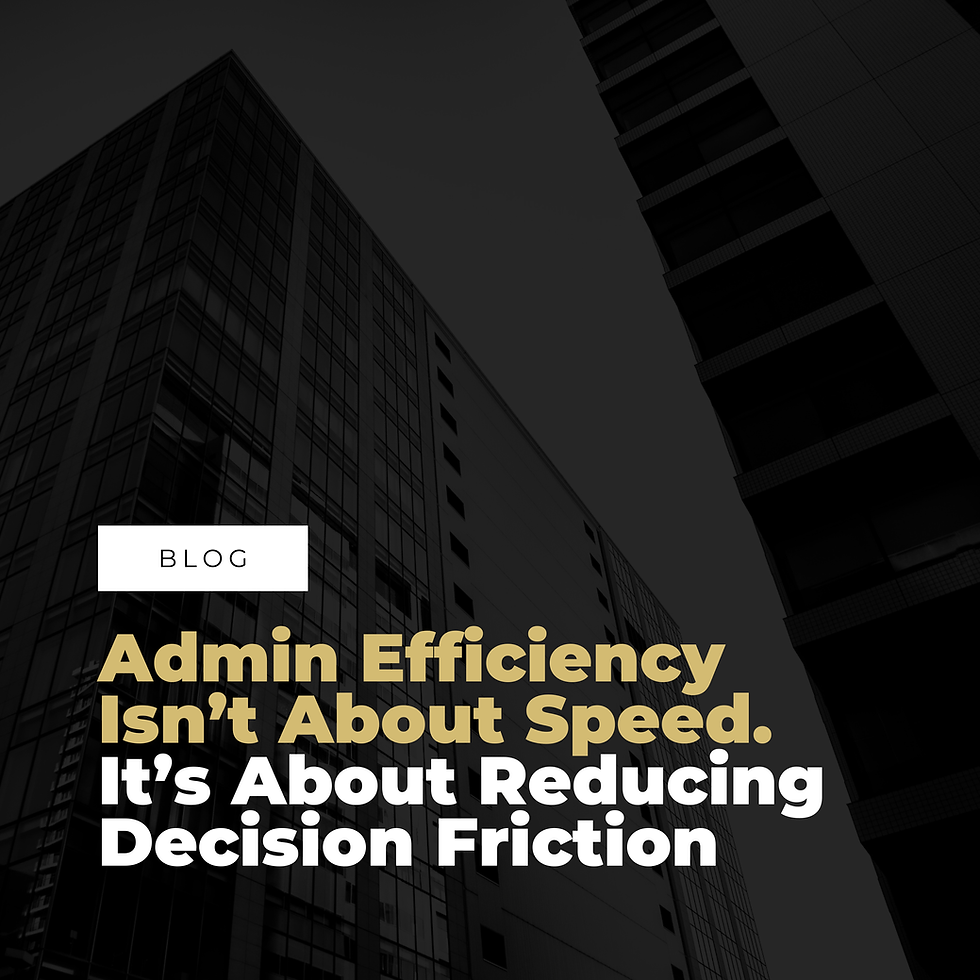The Oversight Gap: What Happens When No One Owns the Vendor Relationship
- Oct 31, 2025
- 2 min read
Law firms rely heavily on outsourcing partners for core operations. But too often, these relationships run on autopilot. Without clear oversight, quality drifts, costs climb, and knowledge disappears the moment a key staffer leaves.
Why Oversight Often Gets Overlooked
In many firms, vendor management is treated as a side task. It gets handed to a department assistant, IT staffer, or junior admin, usually without clear training or authority. As their workload shifts, vendor oversight becomes passive, or worse, invisible.
The Risks of Weak Oversight
When no one truly owns the vendor relationship, it shows up in predictable ways:
Missed opportunities to renegotiate terms
Scope creep and unmonitored fee increases
Poor performance without recourse or escalation
Lost leverage in renewal cycles
These gaps often stretch across years, especially in multi-office environments or legacy contracts.
The Cost of Turnover
If vendor relationships live in one person’s inbox and nowhere else, you are one resignation away from losing critical context. We have seen firms scrambling after a departure, rebuilding contact lists, renegotiating contracts from scratch, and trying to recover unwritten knowledge.
What Strong Oversight Looks Like
Effective oversight does not require a full department. It requires structure:
A named owner with the authority to act
Scheduled check-ins and performance reviews
Central access to contracts, SLAs, and past issues
Clear escalation paths when vendors fall short
These steps ensure that vendor management is proactive, not reactive.
Choosing the Right Point of Ownership
Oversight should sit with someone who understands firm priorities and can advocate for results. This could be operations leadership, administrative services, or a vendor manager, but the person must have both visibility and influence.
Why Proactive Firms See More Value
Vendors respond to engaged clients. When there is a consistent relationship with active dialogue, you get better pricing, better flexibility, and faster resolution. Firms that manage vendors well also avoid surprises and stay aligned with their goals.
How One Firm Took Control of Its Vendor Landscape
A 275-attorney regional firm had multiple vendors operating across different offices, but no clear oversight. Mattern helped the firm centralize vendor ownership, implement quarterly performance reviews, and consolidate contracts under a single management structure. The result was improved service consistency, stronger accountability, and measurable cost savings.
The Mattern Take
Outsourcing is not a set-it-and-forget-it solution. Our job is to help firms formalize vendor management, build in accountability, and make sure relationships serve the firm’s evolving needs.
If your vendors are managing themselves, it may be time to reset the terms. Contact us at info@matternassoc.com.
.png)


